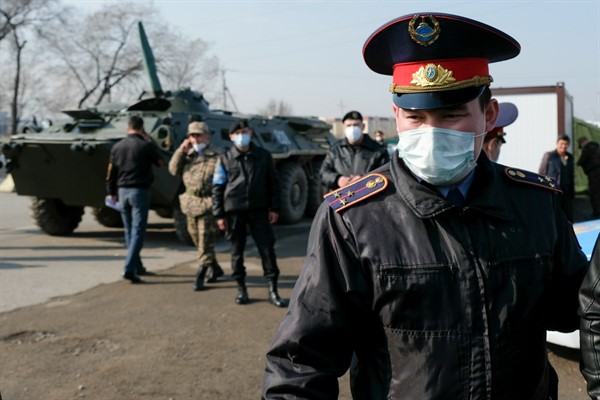In April, the Kyrgyz news outlet Kloop posted a video on YouTube showing a new app called STOP COVID-19. Developed by the government of Kyrgyzstan, it allows the authorities to follow the whereabouts of those exposed to the coronavirus. The video shows the movements of two individuals being tracked by combining their digital profiles and phone locations with their government-issued IDs.
In theory, STOP COVID-19 is a valuable tool in the government’s efforts to track and trace confirmed or suspected coronavirus patients. But the app goes much further than most Kyrgyz citizens would likely be comfortable with. In addition to tracking, the app has the ability to listen to phone conversations, monitor data usage and even take control of a person’s mobile device. And while it is not mandatory, anecdotal evidence indicates that many people are being pressured to install it. The Civil Initiative for Internet Policy, a monitoring group based in the Kyrgyz capital, Bishkek, says that the app amounts to a “gross violation of the current legislation in the field of personal data protection and cybersecurity.” At least 151 people have been arrested for quarantine violations recorded by the software, some of whom are facing fines of up to $800.
It’s not just Kyrgyzstan. Governments across Central Asia have deployed a wave of intrusive apps and equipment to ostensibly fight the virus, which has infected at least 92,000 people in the region. The deployment of these new technologies is likely to accelerate ongoing efforts by authoritarian or illiberal governments in Central Asia to build out their mass surveillance capabilities.

